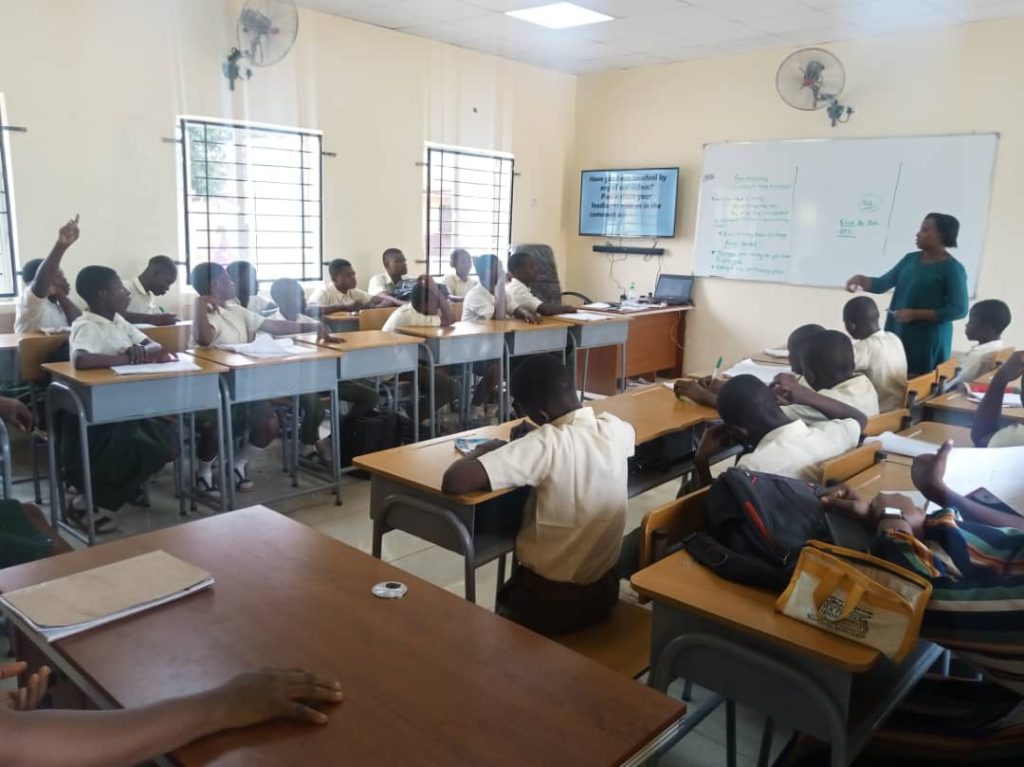As part of its promise to make education a major pillar in the building of a greater Lagos State, the administration of Governor Babajide Sanwo-Olu has launched The Lagos State Comprehensive Schools Programme.
According to Folashade Adefisayo, the Lagos State Commissioner for Education, the programme is basically a response to the high number of students dropping out of the public secondary school system in the state: “We noticed a heavy attrition rate among our senior secondary school students.”, she explains, “Many were not resuming in SS1, after JS3, and even throughout Secondary Schools, there was a steady reduction in enrolment.”
Statistics show that for every 10 students enrolled in JS1, only 3 make it to SS3, with just 1 student eventually graduating. Many of the dropouts get into informal vocational training and street-level hawking and trading-related activities, exposing them to social vices and crime. The programme, Adefisayo insists, offers such students an option: “Instead of going into low-level training, stay with us and we’ll give you first-class training in vocational skills in the safe, controlled environment school provides.”
Above and beyond addressing the school dropout situation in the state, the programme is a model that is designed to unlock the unique intellectual competency of each student and is suited to their intelligence profile and local context. “In reality, there are many levels of measuring intelligence and how people learn.”, Peter Bankole, Chairman of the overall planning committee for the programme, iterates, “We aim to make Lagos the state of choice when it comes to employability and support for students going through the programme.”
PHOTO GALLERY
The programme itself employs a two-pronged approach of general academic and vocational education. The vocational training begins in earnest at the resumption of Senior Secondary School and runs through its three-year duration. It covers five broad subject categories in the pilot phase; Agriculture, Tech and Digital skills, Beauty and Events, Building and Construction, and Media and Entertainment. “The students will have access to hands-on training that incorporates technology.”, Ayopeju Njideaka, Chairman, Curriculum Sub-Committee for Lagos Comprehensive Schools reveals, “In addition to learning skills in agriculture, fashion designing, software development, film-making and others, they will be taught financial literacy, entrepreneurship, communication, marketing and sales, and digital literacy, to enhance their employability and economic independence.”
What sets the programme apart from the already-existing technical colleges in the state is the ease of access offered to students. Instead of the rigours of trying to enrol in colleges in relatively distant locations as Ikeja, Badagry, Ikorodu, Lagos Island and Epe, (acronymed as IBILE), “The programme offers the chance to remain within the formal academic structure and obtain training similar to that in the technical colleges.”, says Abayomi Abolaji, Permanent Secretary in the Lagos State Ministry of Education.
“The pilot phase has commenced in 12 schools across Lagos’ 6 Education Districts (2 schools per district). District 1; Alimosho Senior High School in Alimosho and Dairy Farm Secondary School in Agege. District 2; Majidun Senior High School in Ikorodu and Angus Memorial College, Igbobi. District 3; Ogunmodede Senior College in, Epe and Wahab Folawiyo Senior High School, Ikoyi. District 4; Lagos City Senior College, Sabo, Yaba and Government College Eric Moore, Surulere. District 5; Bola Ige Millenium Senior Secondary School in Ajeromi-Ifelodun and Ajara Comprehensive High School in Badagry. For the last district (6), we have Birch Freeman High School Mushin and Ijeshatedo Grammar School, Okota/Isolo. We hope to expand to 50 by September 2022, with the ultimate goal of establishing the programme in every public secondary school in the state.” Abolaji concluded.
Regarding the sustainability of the programme, Adefisayo says legal documentation is ongoing but believes the critical involvement of the private sector alongside communities and other relevant parties, will foster accountability, and the durability of the Lagos State Comprehensive Schools Programme.
“It is education that provides credible, multiple pathways to life skills; to give the student a job for life, a career for life and a living for life.”
